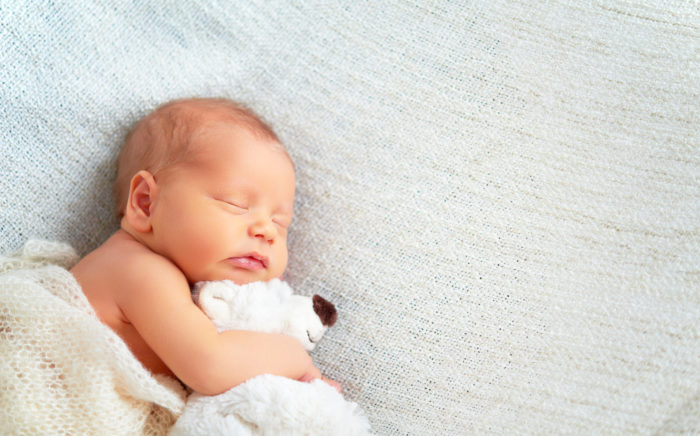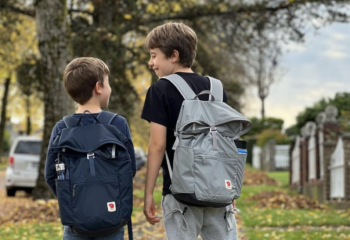Let’s Talk Sleep (and the Lack of It): Q&A with Sleep Consultant Teresa Sedlmair
If you’ve ever been in the trenches of new parenthood, you know that sleep, or more accurately, the total lack of it, can make even the simplest tasks feel impossible. I still remember those early days with my boys, days that bled into nights, nights that never really ended, and the deep, aching tiredness that clouded everything. Eventually, we reached out to a sleep consultant, and I can honestly say it was one of the best parenting decisions we ever made.
With support, guidance, and a plan that actually fit our family, we were able to move into a healthier rhythm, and everyone started sleeping better. It changed everything.
That’s why I’m so thrilled to share this Q&A with Teresa Sedlmair, a certified sleep consultant and founder of Little Trees Sleep Consulting based in Vancouver.
Teresa’s journey into this field is rooted in deep empathy and personal experience. After a traumatic birth, a tough start to breastfeeding, and the crushing weight of postpartum depression and anxiety, she found herself unable to rest, even when her newborn daughter was asleep. Through sleep training, she found healing and joy again, sparking a passion to help other families do the same. Now a mom to two girls and a sleep expert who has supported over 400 families, Teresa brings a compassionate, realistic, and non-judgmental approach to helping parents find peace at bedtime.
Whether you’re in the thick of sleepless nights, curious about what sleep training really is (and isn’t), or just wondering if it’s too late to make a change, this conversation is for you.
Let’s dive into our Q&A with Teresa…
- Let’s start with the basics: What exactly is sleep training, and what isn’t it?
Sleep training is really just teaching your baby how to fall asleep and stay asleep by themselves. This means you can put your baby or toddler in the crib wide awake, and they put themselves to sleep completely independently without rocking, holding, or feeding (to name just a few). It’s not about ignoring your baby or toddler or following a super strict routine—it’s about building a foundational skill which allows them to connect their own sleep cycles at night. The biggest myth out there is that human beings sleep through the night. We all have wakings at night! Sleep training allows your baby or toddler to fall back asleep at those wakings without needing to bed fed, held or rocked to sleep multiple times. - One common myth is that sleep training means letting your baby cry it out. Is that true?
Nope! That’s a big misconception. While formal sleep training methods do involve protest, it does not mean you have to leave the room and not come back. When we make a change in habit, there will be frustration from your child. Learning a new skill can be challenging, and at first, babies or toddlers may not know what to do if they have always been helped to sleep by their parents. Falling asleep independently is a skill learned by doing. However, the frustration passes quickly as your child becomes more confident. You can absolutely support your baby or toddler through the process—cry-it-out isn’t the only way. There are methods where you can stay in the room during the whole process and offer comfort and reassurance. I also always say that half of sleep training has nothing to do with the method. How fast your baby picks up on sleep training is largely influenced also by their daytime routine, environment, bedtime routine and consistency. - Some parents think sleep training is only for babies. Can toddlers or even preschoolers benefit too?
Sleep struggles don’t just magically go away with age, and I actually find they can become more pronounced in toddlerhood when separation anxiety starts to ramp up. The sleep habits that a baby usually has by the first year of life are the ones that will follow them through toddlerhood. Toddlers and preschoolers, however, often need some extra support and benefit from a method with a high level of parental presence. Traditional methods like Ferber are not great due to separation anxiety being so high and where they are at developmentally. If a child is in an open bed, the method becomes even more nuanced. - Is it true that if I sleep train my baby, they won’t feel as emotionally connected to me?
Not true at all. Your baby’s connection with you is built through multiple moments of love, care, and responsiveness throughout their whole day. Being responded to and comforted repeatedly while having meaningful interactions with your baby, is what builds secure attachment. Sleep training doesn’t change that. You’re still showing up for your baby—just in a way that helps them learn to sleep better and holds a strong boundary. It is healthy for parents to hold boundaries around bedtime as this allows their baby and the whole family to be well-rested. Studies support the benefits of sleep training for both parental and child well being. They also support that sleep training is safe, effective and has no negative long term effects on development and attachment. - What if we co-sleep? Can we still sleep train?
If you are coming from a co-sleeping situation, you can definitely sleep train. However, this will usually mean that you are ending the co-sleeping relationship. Sleep training is still possible while room sharing though as many parents want to continue to room share until baby is between 6 and 12 months old. - Will my baby just eventually figure out sleep on their own without training?
Some might, but many babies need a little help along the way—just like learning to eat solids or walk. Sleep is a skill, and with guidance, I believe every baby is capable of learning it. I also am a firm believer though that not every family has to sleep train. If what you are doing is sustainable and you are happy with it, no need to change it. It’s an effective solution for those who want things to change and aren’t happy in their current situation. - What if my baby is super high needs or strong-willed—does sleep training still work?
Yes! These children might need a more personalized approach and a little extra patience, but they can absolutely learn to sleep well. I find I often work with these babies, which is why their parents enlist professional help. However, I don’t always find a correlation between a strong-willed baby and how long it takes for them to catch on. I actually find these babies thrive off a clear and consistent routines. Many babies who seem high needs and fussy actually become much happier and calmer once they are getting adequate and consolidated sleep. - Can I sleep train and still breastfeed or feed at night?
Sleep training doesn’t have to mean night weaning, especially if your baby is younger. I find many babies still need to be fed at night until 6 months old. This is where your baby’s personal history comes in. The decision around night feedings should always be based on a parent’s comfort level. - How do I know if my baby is ready for sleep training?
Most babies are ready somewhere around 3 to 4 months old. This is due to the fact that their sleep cycles have matured and their circadian rhythm is established. As well, they can usually sleep longer stretches at night without feeding. The “four month sleep regression” is a common time for parents to sleep train as it can be a time where babies start waking up every two hours due to their sleep cycles maturing. This is where independent sleep becomes more important as it allows babies to connect those sleep cycles. - There’s so much pressure on parents to get sleep “” What would you say to a mom who feels overwhelmed or guilty?
You’re doing an amazing job. Figuring out your child’s sleep can be one of the toughest parts of motherhood and there’s no one-size-fits-all answer. Nobody has to sleep train and everybody gets to choose what aligns with how they want to parent. If it’s not broken, no need to fix it. However, if a lack of sleep is effecting your ability to be a present, happy and thriving parent and you don’t know how to fix it, sleep training can truly be life changing.
About Teresa Sedlmair.
Hi there, I’m Teresa Sedlmair, a certified sleep consultant in Vancouver and founder of Little Trees Sleep Consulting. More importantly, I’m also mom to two beautiful daughters, Hazel (5) and Maple (3) and yes, they were the inspiration for naming my business.
When I became a mom for the first time, I had no idea sleep training was even a thing. After a traumatic birth that ended in an emergency c-section—where Hazel had to be resuscitated—and an incredibly rough start to breastfeeding, I found myself deep in postpartum depression and anxiety. Sleep deprivation was my biggest trigger. Even when Hazel was asleep (in those short windows between wake-ups), I couldn’t rest. I’d lie awake with racing thoughts, and it quickly became too much.
Sleep training truly saved me. It gave me back my strength, my joy, and allowed me to enjoy motherhood finally. I became fascinated by infant sleep—obsessively reading, learning, and experimenting until things finally clicked for our family. I knew I had to help other parents who felt just as overwhelmed and alone as I once did. Before all this, I was a teacher, but now I’m proud to call sleep consulting my full-time job. I’ve supported over 400 families and am honoured to hold an exclusive 5-star rating. I believe every family deserves sleep, support, and someone in their corner.
You can contact Teresa directly on her website here to book a free consultation. You can also reach her at (778-898-4347) and follow her on social media here: @littletreessleepconsulting









2 Comments on “Debunking Myths Around Sleep Training”
Wonderful info. I was fortunate enough to have no sleeping issues when my two were young.
Stickman Hook is designed for casual gamers and reflex enthusiasts alike, offering smooth controls and progressively harder challenges.